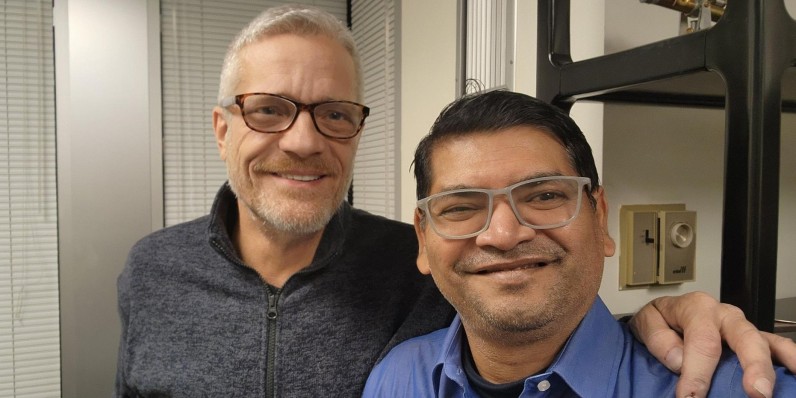
A rideshare driver spends long hours on the road, watching fuel costs eat away at their earnings. While electric vehicles (EVs) are often seen as the perfect solution—cheaper to run and better for the environment—their high upfront costs and lack of access make them feel out of reach for the average gig driver. The same challenge extends to traditional car rental customers who might have otherwise turned to traditional rental services like Hertz but who are now seeking more sustainable and cost-effective options through platforms like Turo.
Add to the mix cities that continue to grapple with rising emissions and congestion while mobility platforms, including those serving traditional rental car clients, struggle to meet sustainability goals. This gap between need and availability is where Kairos Mobility steps in, bridging the divide with a smart, scalable approach to clean transportation.
Kairos Mobility is a Digital-first Clean-Mobility-as-a-Service company. Kairos eliminates unnecessary, complicated, legacy systems and focuses on efficient, tech-driven operations. Co-founders Ganesh Rewanwar, Don Schreffler, Alex Witherow, and Valerie Lee envisioned a way to make clean transportation both accessible and profitable. "We've built a platform that balances scalability, sustainability, and simplicity, proving that decarbonization can be both practical and profitable," explains Schreffler.
Kairos Mobility isn't just another company hopping on the EV bandwagon. It's a venture with a clear mission to speed up the world's shift to sustainability and to do so profitably. Kairos aims to provide EVs to the people who need them most: rideshare drivers, delivery drivers, larger institutions with fleets, and even traditional rental car customers.
The Power of P2G: Platform to Growth
At its heart, Kairos offers something deceptively simple: access to electric vehicles at scale. They make it easier for drivers to switch to EVs by providing affordable EV rentals, charging solutions, and tailored support. "By partnering with popular rideshare platforms, we help drivers save money, reduce emissions, and access EVs without the high upfront cost," explains Rewanwar.
Kairos' P2G (Platform to Growth) business model is key. Rather than just targeting individual consumers, Kairos integrates into existing platforms like Getaround and Turo by supplying the inventory these platforms need to grow. This partnership-driven approach allows Kairos to tap into high-demand zones without the logistical headaches that hinder many of its competitors. "We're not only catering to rideshare and gig economy drivers but also to the 'traditional' rental car customer, who now chooses platforms like Turo over traditional rental companies," explains Schreffler.
Kairos facilitates shared mobility by offering EVs directly to consumers through these platforms. This shared mobility model extends beyond car-sharing to the broader ride-sharing ecosystem, including Uber and Lyft drivers, who benefit from shared vehicle assets. This is a model where both vehicle ownership and rideshare services are shared, thereby reducing emissions and optimizing resources for all parties involved.
Flexibility Meets Clean Mobility
By using centralized digital tools and globally located teams, Kairos avoids the cumbersome overhead of traditional car rental operations. There are no sprawling lots or physical offices, just a lean, efficient team working across the U.S. and India, ensuring operations remain cost-effective and scalable. "We've designed our operations to be flexible and replicable," says Schreffler. "Each city has its own plan, from parking arrangements to route optimization for fleet maintenance. It's about being lean without losing control of the details."
Crowdsourcing to Scale the Fleet
Mobility is a capital-intensive business. Therefore, Kairos incorporates an innovative crowdsourcing model for fleet acquisition. This ensures lower fleet acquisition costs and faster growth.
A Foundational Vision
This operational efficiency is a direct result of the vision and expertise that Kairos Mobility's founders bring to the table. "By combining my experience in logistics and large-scale greenfield projects with Don's expertise in the automotive industry and mortgage markets, we've developed a model that not only addresses immediate needs but also ensures long-term sustainability and profitability for all stakeholders," Rewanwar shares passionately. Their joint expertise has already driven Kairos's growth, with traction visible in fleet deployments, key partnerships, and an expanding pipeline of institutional collaborations.
Blending Innovation and Market Demand
Kairos also stands out by blending its technological innovation with the founders' deep understanding of market needs. The US shared mobility market is $314 billion in 2024 and is expected to grow to $346 billion by 2029.
While competitors may rely on scattered fleets and limited flexibility, Kairos prioritizes operational control and powerful digital infrastructure. In addition to a focus on battery life optimization, smart cash flow management, and centralized tech processes, they are in the exact position to deliver superior products to their partners and end-users effectively. As consumer interest in eco-friendly and shared solutions surges, Kairos is prepared to meet that growing demand as well.
Driving Toward the Future
By embracing clean energy, shared mobility, and a tech-driven approach, Kairos Mobility has created a model that's both scalable and impactful. "We're not here to follow trends," says Don Schreffler. "We're here to create lasting value for our partners, our users, and the planet."
To learn more, go to Kairos Mobility.







Join the Conversation